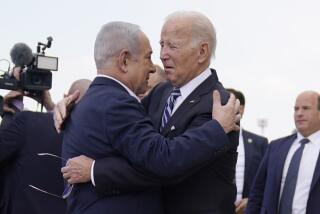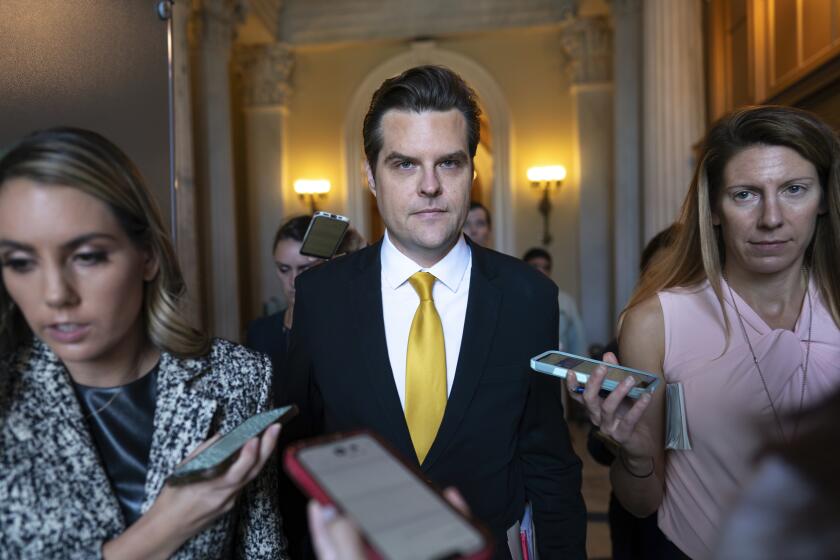Shimon Peres says: Two states for two peoples
The Middle East is ailing. The malady stems from pervasive violence, shortages of food, water and educational opportunities, discrimination against women and — the most virulent cause of all — the absence of freedom.
There can be no peace without freedom. Economic growth is impossible without integration in the free global economy. Tragically, this simple logic eludes us in the Middle East.
The young generation, which makes up most of the region’s population, insists on equal rights, access to education and the jobs created by science and technology. These, not armies or land, are the new sources of national strength. And none is attainable without freedom.
The yearning for freedom lies at the core of human history. The defining moment for my own people occurred 3,000 years ago with our exodus from slavery and journey to freedom in our homeland. Similarly, the Pilgrims who sailed aboard the Mayflower sought freedom in their new promised land. This common quest for liberty forms the cornerstone of the deep friendship between Israel and America.
Still, the longing for liberty is far from fulfilled. It perseveres in many parts of the world, and nowhere more courageously than in the Middle East. My heart goes out to the brave citizens of Syria, who each day risk and even sacrifice their lives to achieve freedom from a murderous regime. We in Israel welcome the historic struggle to forge democratic, peace-loving governments in our region.
Yet no struggle for freedom in the Middle East can succeed without relieving the poverty that drains people’s will. To achieve that will require fundamental transformations in society, giving priority to education and ending discrimination against women. There is no liberty where it is denied to half of the population.
In Israel, a land lacking in natural resources, we learned to appreciate our greatest national advantage: our minds. Through creativity and innovation, we transformed barren deserts into flourishing fields and pioneered new frontiers in science and technology. We are eager to share our experience with our neighbors as they harness their vast human potential.
Our potential, though, cannot be completely realized without peace. Peace is not merely a national necessity, it is a moral imperative.
This is especially true today when the forces of freedom and the perpetrators of extremism clash. Achieving peace between Israel and the Palestinians, for example, would strengthen the seekers of liberty and weaken the oppressors who exploit the conflict for their own ends. I have met with the President Mahmoud Abbas of the Palestinian Authority many times, and I know that peace is possible. The outlines of the agreement are clear to us all: two states for two peoples living side by side in mutual recognition, security and peace.
The enemies of liberty in the Middle East are also the enemies of peace. The Iranian regime suppresses its own people as well as others in the region. It prevents peace by sponsoring terror globally. With the ultimate weapon that it is deceptively developing, the regime aims to gain hegemony over the entire Middle East and hold the world’s economy hostage.
Israelis cannot ignore the Iranian leaders’ denial of the Holocaust and their repeated calls for our destruction. At the same time, we believe that the international effort led by President Obama, a friend of peace and a friend of Israel, may still changeIran’s deadly course. We believe that, as Obama has declared, all options must remain on the table.
I am an optimist, but I am not naive. My many years in public service have taught me the difficulty of reconciling ideals with political realities. Yet I also understand the need to navigate by a moral compass. A nation that strives for liberty ultimately triumphs.
Last week at the White House, on behalf of the people of Israel, I received the Presidential Medal of Freedom. This distinction is a testament to Israel’s commitment to liberty and peace. This week in Jerusalem, I am hosting my annual conference in which global thinkers will consider how to ensure the fruits of liberty and peace for future generations worldwide.
The Middle East is suffering from malaise. But we can envisage and bring about a robust and thriving region by obliterating scarcity, generating opportunities and guaranteeing equality for all. The road to recovery begins — and ends — with freedom.
Shimon Peres is the president of Israel.
More to Read
A cure for the common opinion
Get thought-provoking perspectives with our weekly newsletter.
You may occasionally receive promotional content from the Los Angeles Times.










